Scaffolding Companies Saughall
Find top Scaffolding Company in Saughall
Receive up to 3 Scaffolding Specialists quotes for your project today! Compare profiles, reviews, accreditations, portfolio, etc... and choose the best deal.
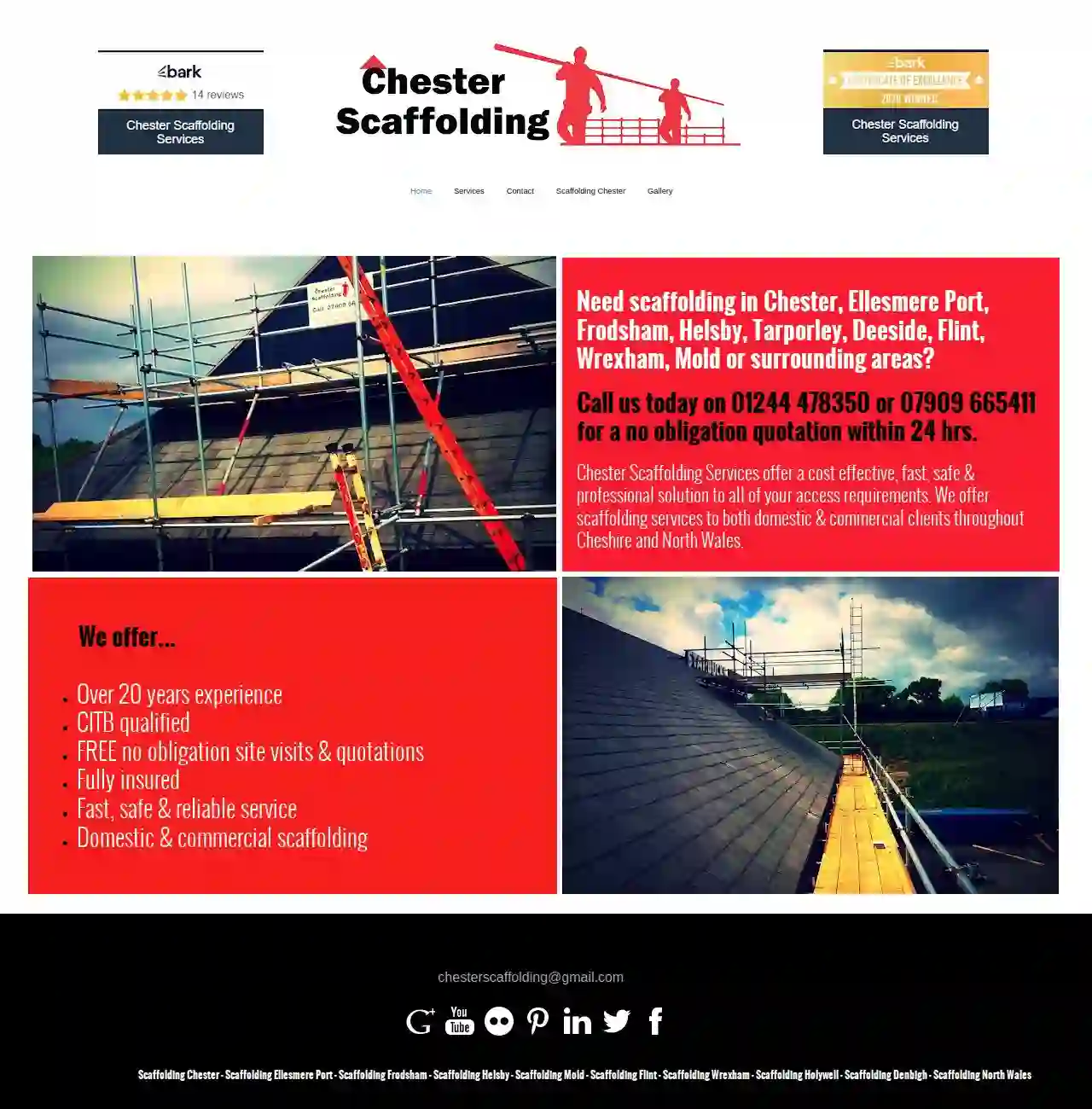
Chester Scaffolding Services
Chester, GBWe offer over 20 years experience, CITB qualified, FREE no obligation site visits & quotations, fully insured, fast, safe & reliable service, domestic & commercial scaffolding. Need scaffolding in Chester, Ellesmere Port, Frodsham, Helsby, Tarporley, Deeside, Flint, Wrexham, Mold or surrounding areas? Call us today on 01244 478350 or 07909 665411 for a no obligation quotation within 24 hrs. Chester Scaffolding Services offer a cost effective, fast, safe & professional solution to all of your access requirements. We offer scaffolding services to both domestic & commercial clients throughout Cheshire and North Wales.
- Services
- Why Us?
- Gallery
Get Quote
CCB Scaffolding Supplies Ltd
Hardengreen Industrial Estate, Dalkeith, Midlothian, 30-2 Eskbank Office Complex, EH22 3NX, GBCCB Scaffolding Supplies Ltd, based in Grangemouth, Scotland. Suppliers of system scaffolding, scaffold fittings, scaffold tube and boards – available on hire and sale.
- Services
- Why Us?
- Gallery
Get Quote
Chester Scaffolding Services
58 reviewsChester, GBWe offer over 20 years experience, CITB qualified, FREE no obligation site visits & quotations, fully insured, fast, safe & reliable service, domestic & commercial scaffolding. Need scaffolding in Chester, Ellesmere Port, Frodsham, Helsby, Tarporley, Deeside, Flint, Wrexham, Mold or surrounding areas? Call us today on 01244 478350 or 07909 665411 for a no obligation quotation within 24 hrs. Chester Scaffolding Services offer a cost effective, fast, safe & professional solution to all of your access requirements. We offer scaffolding services to both domestic & commercial clients throughout Cheshire and North Wales.
- Services
- Why Us?
- Gallery
Get Quote
A & L Parry Ltd
4.857 reviewsSandycroft, Deeside, Unit 5, Abraham Business Park, Abraham Court, Prince William Avenue, CH5 2RN, GBA & L Parry Ltd is an experienced chimney, fireplace and heating installation company based in Chester, serving Wales, The North West and Cheshire. We are specialists in fitting wood burning and multi-fuel stoves, chimney linings and bespoke fire surrounds building work. Our business has over 15 years of experience in the both private and commercial sectors. All of our employees come with a wealth of fireplace and chimney repairs, replacement and restoration expertise. Whether your home is modern or traditional, we take great pride in helping you select the ideal choice of fire surround, wood burner or stove. We offer a wide range of products along with the wealth of knowledge necessary to help you come to an informed decision. Our combination of highly qualified tradesmen and broad range of products have cemented our reputation for excellence. All of A & L Parry Ltd’s work is guaranteed, and we ensure after-care service for all services provided.
- Services
- Why Us?
- Accreditations
- Our Team
- Testimonials
- Gallery
Get Quote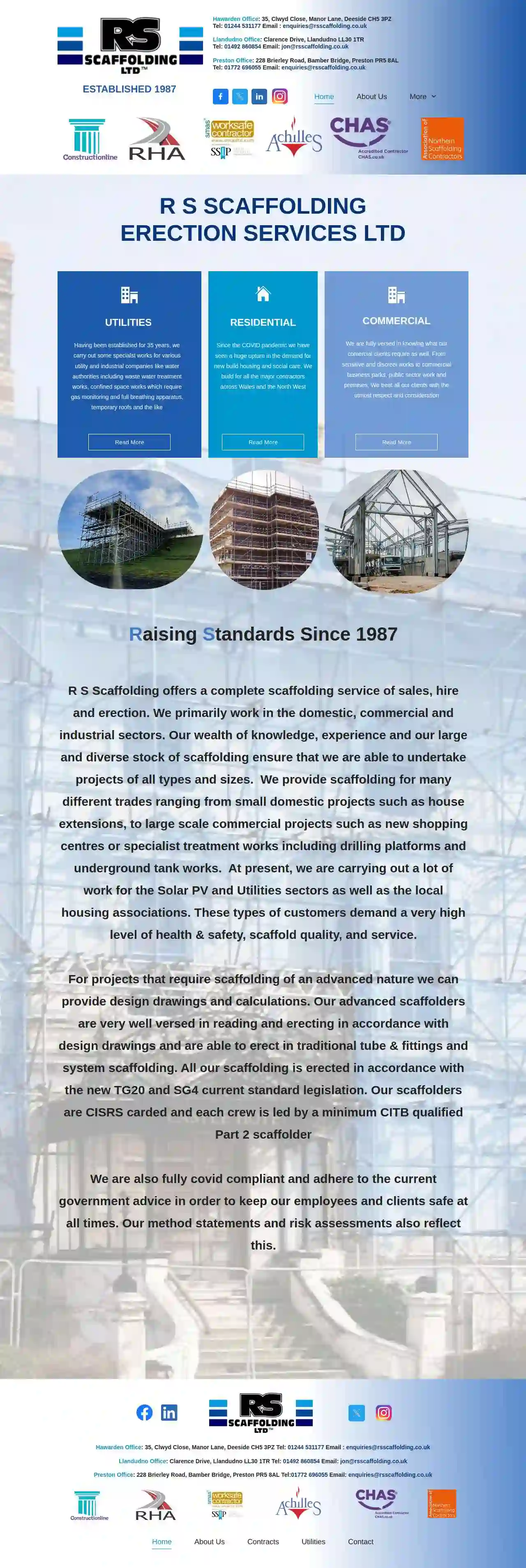
R S Scaffolding Erection Services Ltd
57 reviews35, Clwyd Close, Manor Lane, Deeside, CH5 3PZ, GBR S Scaffolding Erection Services Ltd has been established for 35 years, providing a complete scaffolding service of sales, hire and erection. We primarily work in the domestic, commercial and industrial sectors. Our wealth of knowledge, experience and our large and diverse stock of scaffolding ensure that we are able to undertake projects of all types and sizes. We provide scaffolding for many different trades ranging from small domestic projects such as house extensions, to large scale commercial projects such as new shopping centres or specialist treatment works including drilling platforms and underground tank works. At present, we are carrying out a lot of work for the Solar PV and Utilities sectors as well as the local housing associations. These types of customers demand a very high level of health & safety, scaffold quality, and service. For projects that require scaffolding of an advanced nature we can provide design drawings and calculations. Our advanced scaffolders are very well versed in reading and erecting in accordance with design drawings and are able to erect in traditional tube & fittings and system scaffolding. All our scaffolding is erected in accordance with the new TG20 and SG4 current standard legislation. Our scaffolders are CISRS carded and each crew is led by a minimum CITB qualified Part 2 scaffolder. We are also fully Covid compliant and adhere to the current government advice in order to keep our employees and clients safe at all times. Our method statements and risk assessments also reflect this.
- Services
- Why Us?
- Accreditations
- Gallery
Get Quote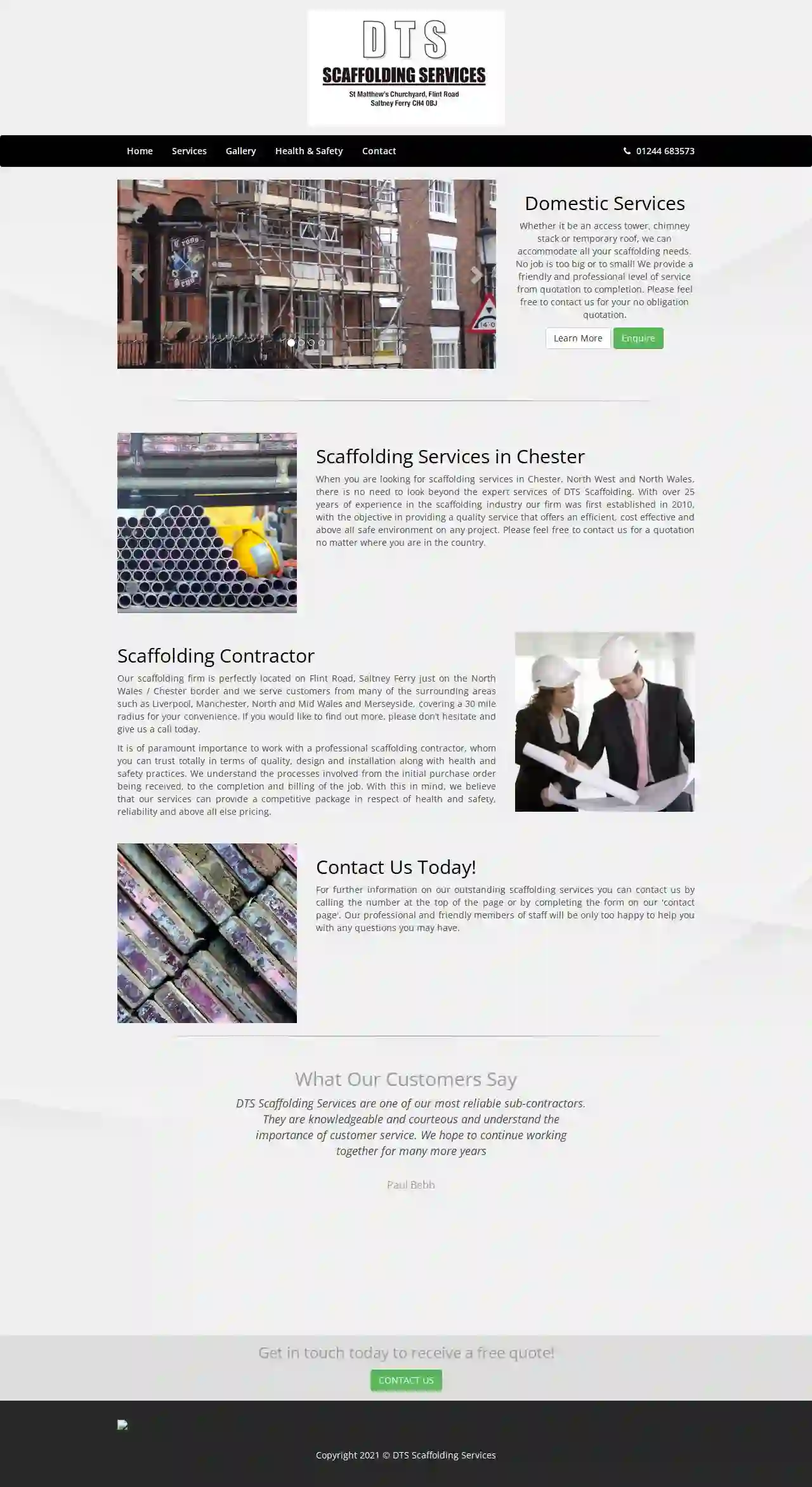
DTS Scaffolding Services Ltd
4.414 reviewsFlint Road, Saltney Ferry, St Matthew's Churchyard, Chester, CH4 0AG, GBDTS Scaffolding Services is a family-run business established in 2010, serving the North West and North Wales regions. With over 25 years of combined experience in the scaffolding industry, we pride ourselves on providing a quality service that is efficient, cost-effective, and above all, safe. We are committed to working closely with our clients, offering expert advice and assistance from the initial stages of a project through to completion. Our team of fully trained and qualified operatives are dedicated to delivering exceptional results, ensuring that all work is carried out to the highest standards. Whether you require scaffolding for domestic, commercial, industrial, or specialist projects, DTS Scaffolding Services has the expertise and resources to meet your needs. We cover a 30-mile radius from our base in Saltney Ferry, Chester, and are always happy to provide a free, no-obligation quotation.
- Services
- Why Us?
- Accreditations
- Gallery
Get Quote
Fulcrum Scaffold Safety And Training
51 reviewsMostyn, Port of Mostyn, CH8 9HE, GBFulcrum Scaffold Training & Safety Ltd provides health, safety and training nationally to the construction, nuclear, petrochemical and power generation industries. We offer a range of services and are specialists in scaffolding with vast experience in health, safety, training and assessment. We support clients operating in accordance with legislative requirements including British and European standards.
- Services
- Why Us?
- Our Team
- Gallery
Get Quote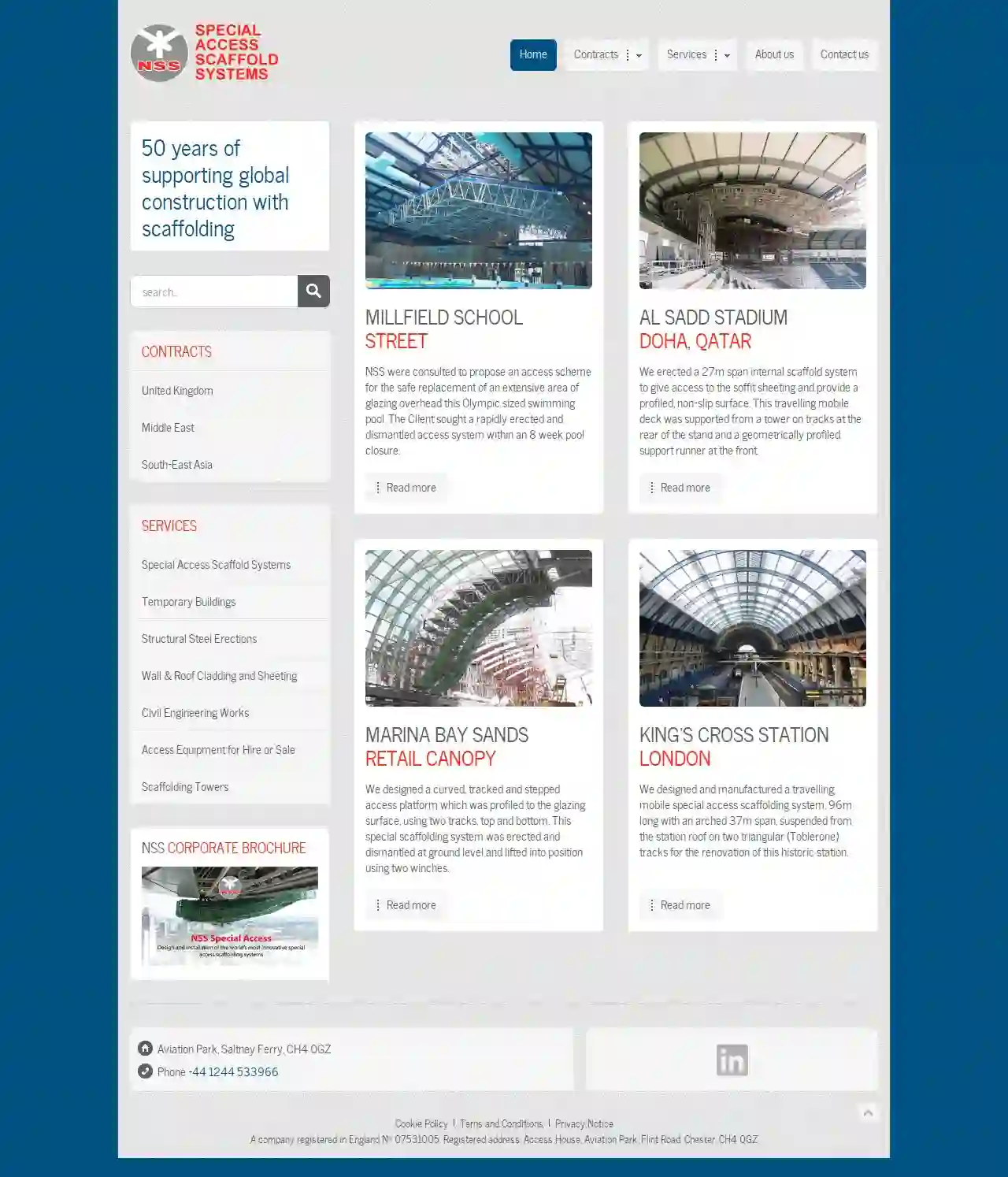
NSS Special Access
Avian Park, Saltney Ferry, CH4 0GZ, GBNSS Special Access is a global leader in innovative special access scaffolding systems, boasting 50 years of experience across all industrial sectors. We are renowned for our originality of design, economy, and speed of erection, making us the preferred choice for prestigious, complex, and challenging projects. Our expertise extends to railway, military, industrial, and government facilities, where health, safety, and commercial sensitivity are paramount. We pride ourselves on working closely with clients from design to installation, tailoring our scaffold systems and services to meet their specific needs and budget. Our process begins with a preliminary design to ensure feasibility, followed by the erection of a test scaffolding rig in our engineering workshops for client evaluation. Our scaffold systems primarily utilize structural aluminium with pre-fabricated panels, accounting for approximately 95% of the equipment. The remaining 5% comprises adaptive components, manufactured individually for each contract. Clients receive comprehensive costing and project management information throughout the contract lifecycle. We are committed to efficiency and workplace safety, operating to high standards and employing highly experienced scaffolders managed by senior foremen and supervisors. All scaffolding is designed and erected to international standards.
- Services
- Why Us?
- Our Team
- Gallery
Get Quote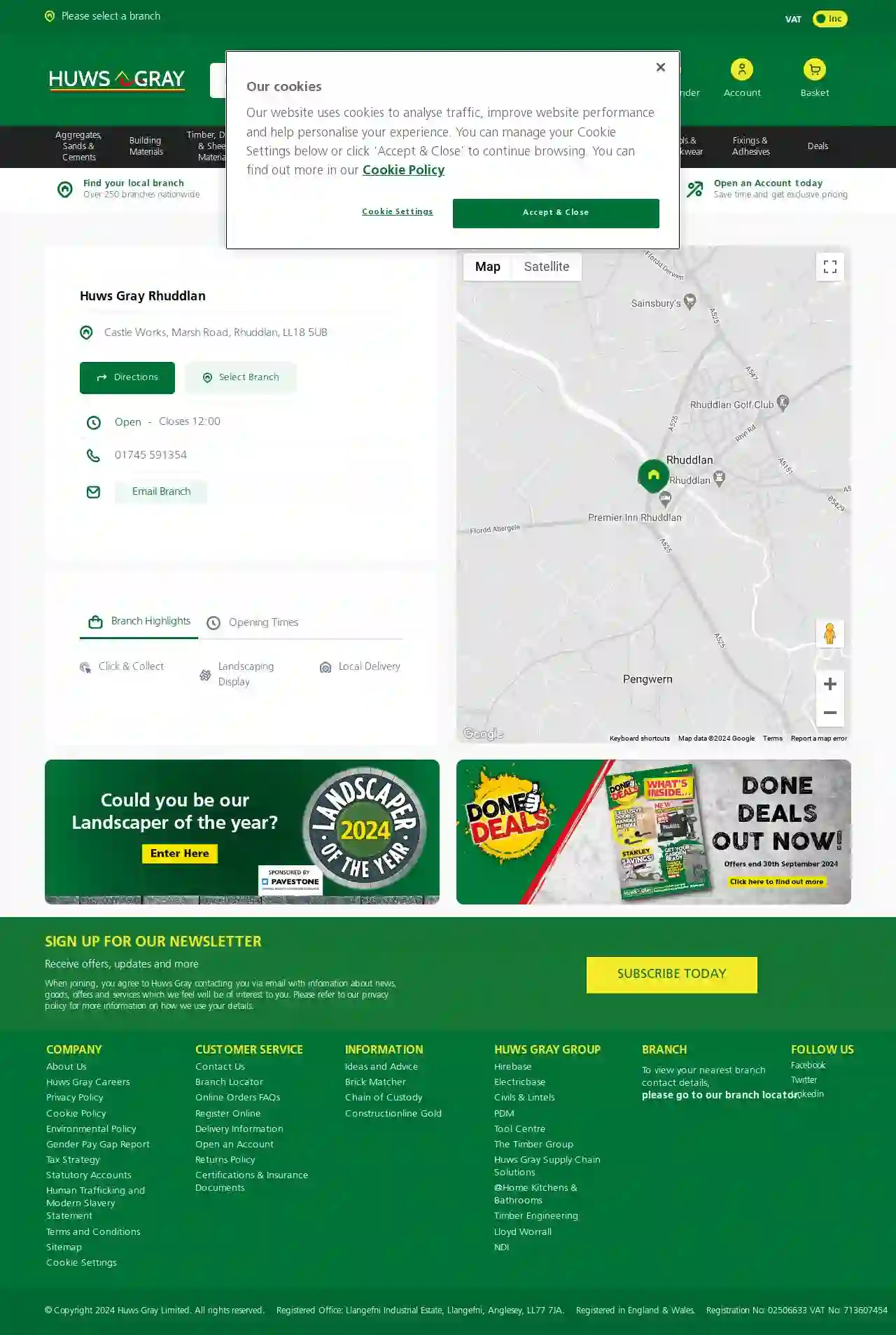
Huws Gray Rhuddlan
4.564 reviewsChester, GBHuws Gray is a leading supplier of building materials and timber products, with over 250 branches nationwide. We offer a wide range of products and services, including aggregates, sands, and cements, building materials, timber, doors, and sheet material, insulation and plasterboard, landscaping and paving, kitchens and bathrooms, plumbing and heating, electrical, painting and decorating, and tools and workwear. Our products are sourced from reputable suppliers and are available for delivery or collection from our branches. We also offer a range of services, including advice and guidance, delivery, and installation. Our team of experts is dedicated to providing excellent customer service and ensuring that our customers receive the best possible products and solutions for their needs.
- Services
- Why Us?
- Gallery
Get Quote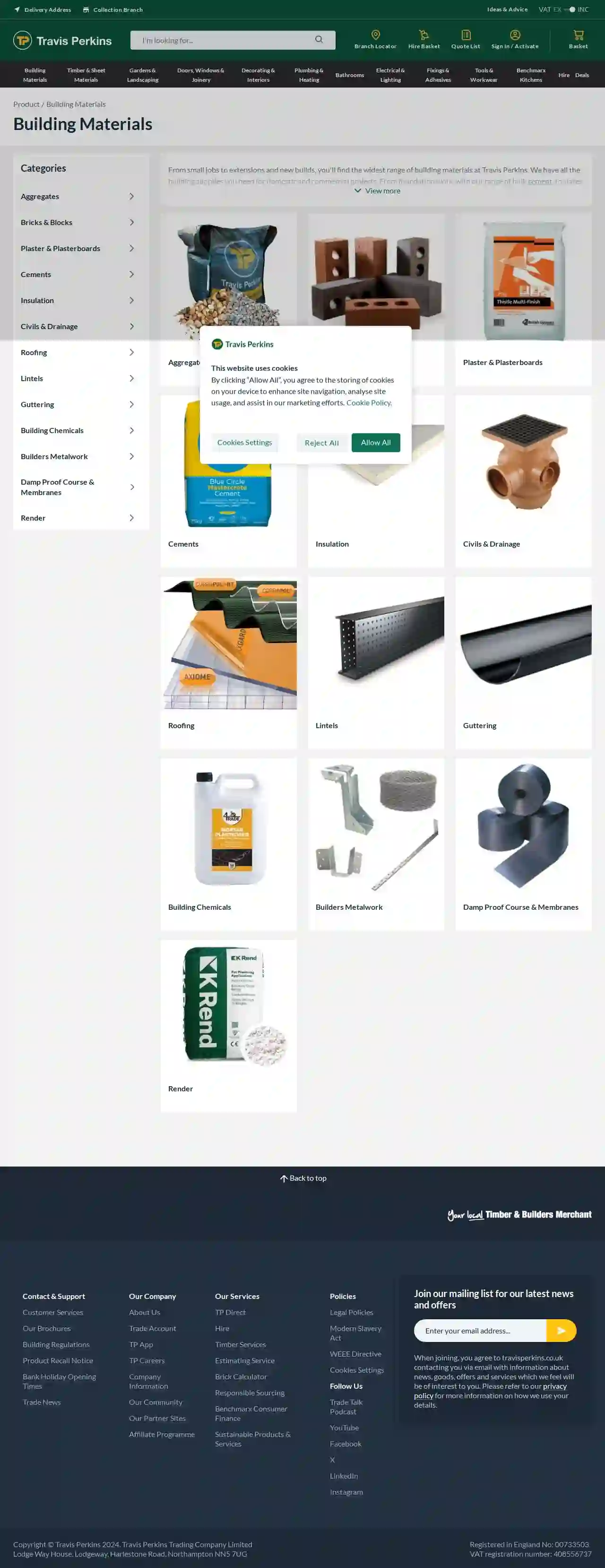
Minster Buckley
4.33 reviewsChester, GB- Services
- Why Us?
- Gallery
Get Quote
Over 4,131+ Scaffolding Contractors on our directory
Our scaffolding contractors operate in Saughall & surrounding areas!
ScaffoldingHQ has curated and vetted the Best Scaffolding Businesses arround Saughall. Find a reliable pro today.
Frequently Asked Questions About Scaffolding Companies
- Project Size and Complexity: The height, configuration, and accessibility of the scaffolding will influence the amount of materials and labor required.
- Scaffolding Type: Different scaffolding systems (tube and clamp, system scaffolding, suspended scaffolding) have varying costs.
- Duration of Rental: The length of time you need the scaffolding will affect the overall rental price.
- Location: Labor costs and material availability can differ based on your location.
- Additional Services: Some companies may offer additional services like erection, dismantling, or transportation, which can add to the cost.
- Workers: Consider the number of workers on the scaffolding at any given time.
- Materials: Include the weight of building materials, tools, and equipment being used on the platform.
- Environmental Factors: Factor in potential loads from wind or snow, especially for taller scaffolding structures.
- A larger, more complex structure typically used for accessing multiple levels of a building.
- Offers greater height and versatility.
- Often used for construction, renovation, and maintenance.
- Smaller, portable platforms usually used for tasks at a single level.
- Commonly used for painting, plastering, or light repairs.
- Can be rolling or stationary.
- Tube and Clamp Scaffolding: A traditional and versatile system using individual tubes and clamps. It's highly adaptable but requires more time to erect.
- System Scaffolding: Pre-engineered systems with modular components that fit together quickly. They offer speed and efficiency, especially for larger projects.
- Suspended Scaffolding: Hung from a roof or overhead structure, ideal for high-rise buildings or areas with limited ground access.
- Mobile Scaffolding: Mounted on wheels, allowing easy movement around a worksite. Suitable for tasks like painting or plastering.
- Specialized Scaffolding: Cantilever scaffolding, rolling towers, and other specialized systems cater to specific needs.
How much does scaffolding cost to rent in the UK?
What is the weight limit for scaffolding?
What is the difference between scaffolding and staging?
Scaffolding:
What are the different types of scaffolding?
How much does scaffolding cost to rent in the UK?
- Project Size and Complexity: The height, configuration, and accessibility of the scaffolding will influence the amount of materials and labor required.
- Scaffolding Type: Different scaffolding systems (tube and clamp, system scaffolding, suspended scaffolding) have varying costs.
- Duration of Rental: The length of time you need the scaffolding will affect the overall rental price.
- Location: Labor costs and material availability can differ based on your location.
- Additional Services: Some companies may offer additional services like erection, dismantling, or transportation, which can add to the cost.
What is the weight limit for scaffolding?
- Workers: Consider the number of workers on the scaffolding at any given time.
- Materials: Include the weight of building materials, tools, and equipment being used on the platform.
- Environmental Factors: Factor in potential loads from wind or snow, especially for taller scaffolding structures.
What is the difference between scaffolding and staging?
Scaffolding:
- A larger, more complex structure typically used for accessing multiple levels of a building.
- Offers greater height and versatility.
- Often used for construction, renovation, and maintenance.
- Smaller, portable platforms usually used for tasks at a single level.
- Commonly used for painting, plastering, or light repairs.
- Can be rolling or stationary.
What are the different types of scaffolding?
- Tube and Clamp Scaffolding: A traditional and versatile system using individual tubes and clamps. It's highly adaptable but requires more time to erect.
- System Scaffolding: Pre-engineered systems with modular components that fit together quickly. They offer speed and efficiency, especially for larger projects.
- Suspended Scaffolding: Hung from a roof or overhead structure, ideal for high-rise buildings or areas with limited ground access.
- Mobile Scaffolding: Mounted on wheels, allowing easy movement around a worksite. Suitable for tasks like painting or plastering.
- Specialized Scaffolding: Cantilever scaffolding, rolling towers, and other specialized systems cater to specific needs.